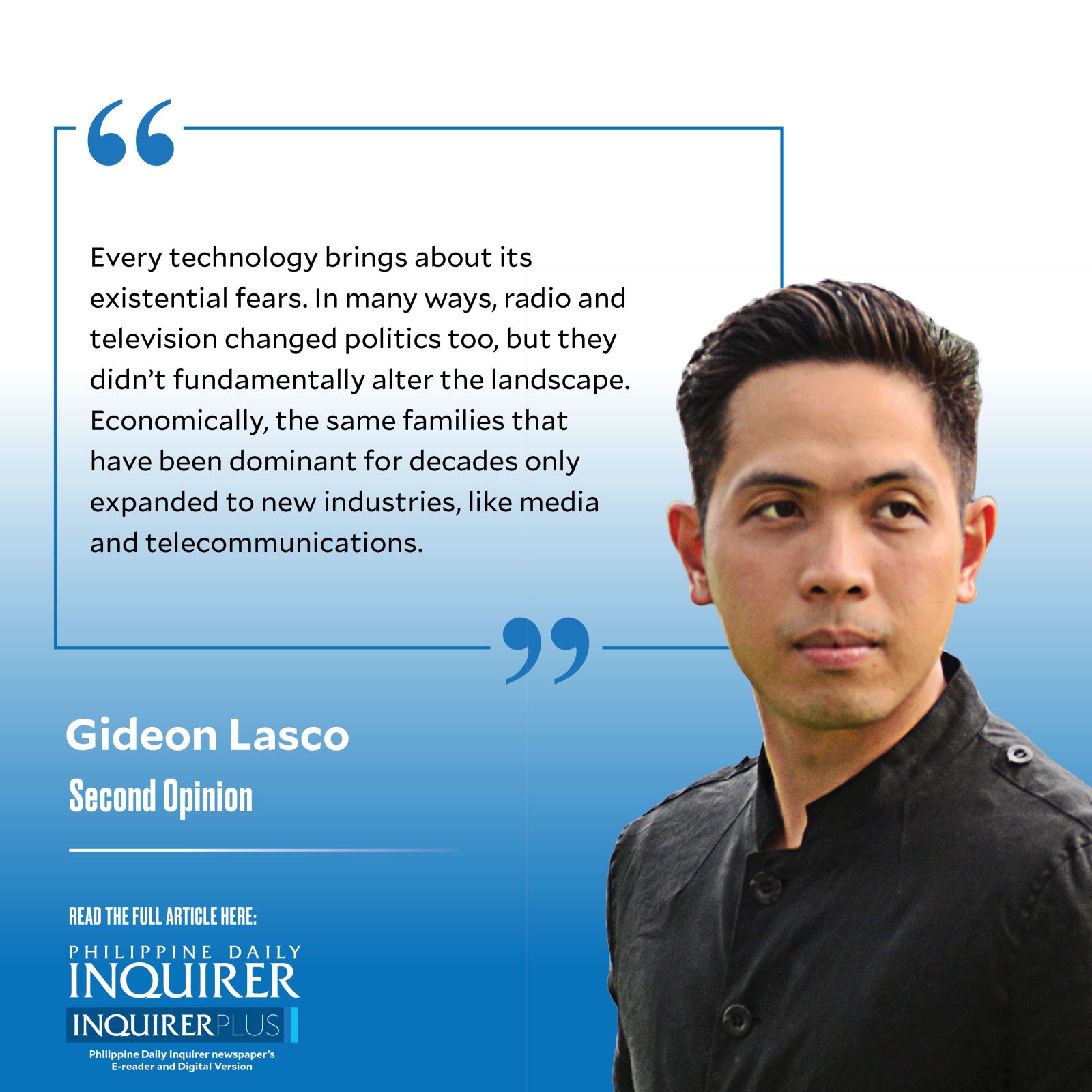Social media, politics, activism

This dialogue between two fictitious friends is continued from “A political conversation,” (1/5/24).
Gon: A country that has produced Andres Bonifacio and Jose Rizal surely has revolutionary potential, to say nothing of the guerrilla fighters during World War II, and the resistance during martial law. Of course, as Nick Joaquin reminded us, all these heroes have their flaws and weaknesses. But I will not dispute the “revolutionary potential” of our people.
I wonder, though, if something has changed. When was the last time we had anything in the scale of Edsa? Maria Ressa had a point when she argued that what we’re seeing today is qualitatively different, thanks to social media’s frightening algorithms. Traditional media has long been in decline … who reads columns these days? And for all their star power, not even Angel Locsin or KathNiel moved the needle for Leni Robredo. Surely, these dynamics have altered our politics and can help explain the indifference we see today.
Killua: I wouldn’t give social media too much credit—look at how Mocha Uson faded away without people even noticing. Influencers, and even entire platforms can fade away fast. Millennials wax nostalgically about Friendster and Multiply, but there’s not a single trace of these platforms. Elon Musk has put Twitter on a self-destruct mode; in 10 years, we may be talking about something that doesn’t exist yet.
Every technology brings about its existential fears. In many ways, radio and television changed politics too, but they didn’t fundamentally alter the landscape. Economically, the same families that have been dominant for decades only expanded to new industries, like media and telecommunications. And in many parts of the country, the same political dynasties remain entrenched, as they have been for decades.
Gon: Good point about Mocha, but there’s empirical evidence of how social media has led to polarization. And as the success of those TikTok sellers show, these novel platforms hold immense economic and political power. Dr. Willie Ong—who made his name making YouTube videos and Facebook live appearances—may have failed to win twice, but he’s even rating higher than Robredo in some senatorial surveys. The Tulfos, even the President himself, have drawn heavily on social media presence as part of their political capital.
The intrusiveness of smartphones makes them very different from media of bygone years, and artificial intelligence will surely make cyberspace more pervasive. With cookies, trackers, the internet knows more about us than our closest friends, even ourselves. Have any of your flings popped up in your “Suggested friends” list yet?
Killua: I’ve long deactivated my Facebook profile, realizing that the time I used to spend in social media can be better put to reading books like—most recently—Glenn Diaz’s “Yñiga” and Neferti Tadiar’s “Remaindered Life.” But when I’m bored, I would sometimes lurk on X, if only to observe how, in contrast to your overly pessimistic view, social media can actually enable activism. Look at how Western media’s complicity was exposed by the Gazans themselves, directly sharing to the world the genocide they’re facing.
But I’m with you in being concerned about social technologies. I like Taylor Swift, especially “1989,” but her rise to billionaire status speaks of how capitalism can harness people’s affective potentials through online platforms. The impact of social media on our mental health is also not to be underestimated; how people measure themselves against the Insta-worthy versions of their lives and those of others.
Gon: Not fair to single out Taylor Swift, when the entire music industry rests on those platforms, and artists have to be more creative in their marketing due to the pithy they get from streaming sites. The same social media that enabled the rise of BTS has also birthed communities around local artists, from SB19 to Matthaios.
I would still argue that there’s something to be said of how we’re living in exceptional times. Remote work, all those apps, the ease of travel … that people can go abroad can make them ask questions: “Why can’t we have the same subway system as Tokyo? The same health care as Thailand?” But it can also lead to the opposite: “Why worry about the Philippines, when I can just take a break elsewhere, before facing the traffic of Edsa anew?” Either way, the ground has shifted.
Killua: You’re still just thinking about the upper and middle classes. Can a farmer work remotely? Can a minimum wage earner, whose daily income is the equivalent of two grande frapuccinos, go to Japan and marvel at the Nozomi Shinkansen? Sure, almost everyone has a smartphone by now, there’s piso Wi-Fi even in the remotest village. But for the vast majority of Filipinos, the same old struggles have remained unchanged.
Which, by the way, is why I think narratives of historical injustice—including invocations of Edsa—don’t appeal to many Filipinos. For them, martial law was no different from other periods in our history, in which people needed to work hard and fend for themselves.
—————-
glasco@inquirer.com.ph




















